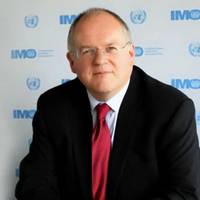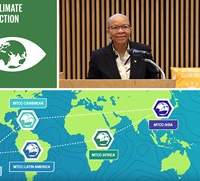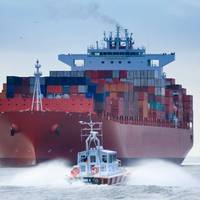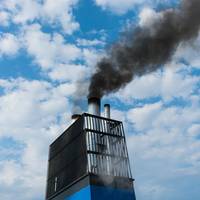IBIA Appoints Alexander Prokopakis as Executive Director

The International Bunker Industry Association (IBIA) has appointed Alexander Prokopakis as its new Executive Director.Joining the IBIA team on September 1 with Edmund Hughes, the recently appointed IBIA IMO Representative, Prokopakis will be instrumental in navigating the association through the evolving challenges and opportunities in the marine fuel industry.Well-regarded within the IBIA community, he brings a strong background of active association membership. His recent leadership…
IBIA Appoints Dr. Edmund Hughes as Its New IMO Representative

The International Bunker Industry Association (IBIA) announced the appointment of Dr. Edmund Hughes as its International Maritime Organization (IMO) Representative, effective from September 1, 2023. Dr. Hughes will succeed Unni Einemo.A prominent figure in the maritime community, many will recognize Edmund for his pivotal role as the Head of Air Pollution and Energy Efficiency in the Marine Environment Division at the IMO. His tenure there played a significant part in developing MARPOL Annex VI…
Green Shipping Fuels of the Future
Ammonia and hydrogen are promising potential fuels of the future in a de-carbonized shipping industry, which has to switch to alternative, zero carbon fuels in order to meet the targets set out in the initial International Maritime Organization (IMO) strategy on reduction of GHG emissions from ships, an IMO symposium on sulfur 2020 and alternative fuels heard on Friday (18 October).Setting the scene, IMO's Edmund Hughes said the initial GHG strategy, adopted in 2018, had sent a clear signal that shipping will need to adapt. "We have to change to address global climate change," he said."We have to find new technologies and new fuels if we are to achieve at least 50% reduction in annual GHG emissions from international shipping by 2050…
EU/IMO Global Project Drives Energy Efficiency

The GMN global network of maritime technology cooperation centers has completed numerous pilot projects over the past three years, helping to drive forward the changes which are required to reduce GHG emissions from shipping. A global network of maritime technology cooperation centers has completed an impressive array of pilot projects over the past three years, helping to drive forward the changes which are required to reduce GHG emissions from shipping.Five regional Maritime…
No Delays to Implementing 2020 Sulphur Cap -IMO Official

The International Maritime Organization (IMO) will not delay implementing a reduction in the amount of sulphur in marine fuel in 2020, an IMO official said on Tuesday."I can categorically say there will not be a delay," said Edmund Hughes, the head of air pollution and energy efficiency at the IMO, during the Asia Pacific Petroleum Conference (APPEC) in Singapore.IMO, the United Nations' shipping agency, will require that vessels start in 2020 using fuel oil with 0.5 percent sulphur…
European Shipowners on Greenhouse Gas Emissions
The European shipowners together with MEP Wim Van de Camp yesterday organised a seminar in the European Parliament to discuss the International Maritime Organization (IMO) initial Greenhouse Gas (GHG) emissions reduction strategy for shipping. The initial strategy was adopted in the 72nd session of the Marine Environment Protection Committee (MEPC) of the IMO in April this year, said a release from European Community Shipowners' Associations (ECSA). Van de Camp opened the well-attended event and said: “Today I have invited you here to discuss the efforts of the international shipping industry to reduce its GHG emissions. It’s important that the Transport committee pays attention to the international shipping sector’s goals”.
IMO GHG Strategy in Focus at European Parliament
Members of the European Parliament and other stakeholders have been briefed on the Initial International Maritime Organization (IMO) Strategy on Reduction of GHG emissions from ships, adopted in April, and the follow-up actions that may be taken to implement the initial strategy including consideration of candidate short term measures. IMO’s Edmund Hughes outlined the key elements of the initial strategy, which sets a clear commitment to a complete phase-out of GHG emissions from international shipping as soon as possible in this century, a specific linkage to the Paris Agreement and a series of significant levels of ambition including at least a 50% cut in total annual GHG emissions from the sector by 2050 compared to 2008.
IMO Highlights GHG Strategy
International Maritime Organization (IMO) has reported on the recent landmark adoption of an initial IMO Strategy on reduction of GHG emissions from ships at the Bonn Climate Change Conference (30 April-10 May). IMO’s Edmund Hughes informed the opening of the plenary session that the vision set out in the strategy confirms IMO’s commitment to reducing GHG emissions from international shipping and, as a matter of urgency, to phasing them out as soon as possible in this century. Hughes also highlighted further progress on related matters, including entry into force of mandatory requirements for the collection and reporting of ship fuel oil consumption data and the official launch of the Global Maritime Technology Cooperation Centres (MTCC) Network.
IMO to Ban Ships without Scrubbers from Carrying High Sulphur Fuel

The International Maritime Organization intends to ban ships that do not have equipment to strip sulphur from carrying fuel that has a sulphur content above new limits in 2020, an IMO official said on Thursday. The ban, which still has to go through two formal approval steps, was presented at IMO compliance meetings earlier this month. It would make enforcing the new limits on sulphur in shipping fuels significantly easier, cutting into the expected rule-breaking. "There wasn't that dissent…
Ships 'Unseaworthy' If They Don't Meet Emissions Rules -IMO
Ships which do not meet cuts to the amount of sulphur they can burn in their engines risk being declared "unseaworthy", the International Maritime Organization (IMO) said on Thursday. Shippers and refiner are not sure how they will comply with rules finalized last year which require ships worldwide to cut sulphur emissions from 3.5 to 0.5 percent by 2020. The IMO said there would be no delays or exceptions to the coming rules, whether or not the industry takes the steps it needs to comply, and warned that all parties face consequences if they do not play their part. Edmund Hughes, head of air pollution and energy efficiency with the IMO, said that vessels owners are taking a huge risk if they choose not to comply with the rules.
Technology Cooperation for Low-Carbon Shipping
The Global MTTC Network (GMN) maritime technology project, run by International Maritime Organization (IMO) and funded by the European Union, was presented during a side-event (10 November) at the UN climate change conference in Bonn, Germany (COP 23). The project established a network of five regional Maritime Technology Cooperation Centres (MTCCs). Representatives of the European Union, IMO, MTCC-Caribbean and MTCC-Pacific participated at the event. MTCCs updated the audience on their pilot projects, including data collection on fuel oil consumption on ships. From 2019, ships over 5,000 gross tonnage worldwide – which account for 85% of CO2 emissions from international shipping - will be required to collect consumption data for each type of fuel oil they use…
Bunker Industry Prepares for Sulphur Limit in Ship Fuel
An audience of ship owners, fuel suppliers, traders and maritime technology providers attending the IBC Asia Bunkering conference in Singapore has heard about International Maritime Organization (IMO)’s latest work on low carbon shipping and air pollution control. IMO’s Edmund Hughes provided an update on the work being carried out by the Organization to support effective and consistent implementation of the 0.50% global limit on the sulphur content of fuel oil which will apply from 1 January 2020. Preparations by the bunker industry for complying with the sulphur limit was one of the key issues being discussed at the conference (26-28 July).
Heading Towards the 2020 Sulphur Limit
The need for all stakeholders to work towards effective and consistent implementation of the 2020 0.50% global sulphur limit has been highlighted during maritime industry events in Denmark this week. International Maritime Organization (IMO)’s Edmund Hughes spoke about IMO’s role moving towards the 0.50% sulphur limit at an event focusing on the “2020 global sulphur challenge: Implementation and Enforcement”, hosted by the Danish Ecological Council (21 March). At the GST Europe Conference 2017 (22 March), Mr. Hughes again drew attention to the global sulphur limit as a key item on IMO’s environmental agenda. He also outlined other key regulatory moves at IMO which will be the focus for work in the Marine Environment Protection Committee (MEPC)…
Maritime Energy Management in the Spotlight
International Maritime Organization (IMO)'s global energy efficiency rules are key to a sustainable future for shipping. This was the message from IMO Secretary-General Kitack Lim to the MARENER 2017 conference on maritime energy management, taking place at the World Maritime University (WMU) in Malmö, Sweden (24-25 January). Lim emphasized the importance of energy management and outlined the numerous on-going IMO projects to help implement global energy efficiency measures for shipping. The conference also saw IMO’s Edmund Hughes chair a session on the regulatory framework of energy management, covering the establishment of a data collection system for fuel oil consumption as part of a roadmap for developing a comprehensive IMO strategy on reduction of GHG emissions from ships.
Pacific Islands for Energy Efficiency
An energy efficiency workshop for Pacific Island countries and territories has been held in Port Vila, Vanuatu (12-14 December). The event helped participants gain knowledge and tools to develop national strategies and clear policies to improve energy efficiency in maritime and port infrastructures, to use alternative and cleaner fuels and to increase awareness of energy-efficiency measures. International Maritime Organization (IMO)'s Edmund Hughes delivered a presentation (via remote participation) on policy and strategy for energy efficiency in maritime transport. The workshop was delivered by the Pacific Community (SPC), in collaboration with the Secretariat of the Pacific Regional Environment Programme (SPREP), and was funded by IMO.
Shipping CO2 Developments Highlighted at COP 22
The recent progress made by International Maritime Organization (IMO) towards reducing greenhouse gas emissions from international shipping has been presented to the UNFCCC Subsidiary Body for Scientific and Technical Advice (SBSTA 45), which is meeting as part of the COP 22 Marrakech Conference. IMO’s Marine Environment Protection Committee (MEPC 70) recently adopted a mandatory data collection system on fuel oil consumption of ships and approved a Roadmap for developing a 'Comprehensive IMO strategy on reduction of GHG emissions from ships'. IMO’s Edmund Hughes is also participating in a number of side events, including presenting IMO’s work as it relates to the oceans, mitigation actions, and in support of the UN Sustainable Development Goals.
Next Steps in IMO’s Energy Efficiency Training
International Maritime Organization (IMO) is continuing its work to support developing countries to prevent air pollution and greenhouse gas emissions from ships with a global training exercise held in Batumi, Georgia (12-14 September). Participants are being trained to use three new draft guides, specifically developed under IMO’s GloMEEP project in collaboration with IMArEST, which cover i) rapid assessment for determining the country maritime energy efficiency and emissions status, ii) maritime energy efficiency strategy development, and iii) incorporation of MARPOL Annex VI into national law. Thirty-seven participants from all 10 GloMEEP lead pilot countries* are taking part in the exercise, which will lay the foundation for further work in the countries going forward.
IMO Releases New Guides for Energy Efficiency Regulations
Three new guides that will support States to effectively implement IMO-adopted mandatory energy-efficiency measures for shipping have been rolled out during a training under the Global Environment Facility (GEF)-United Nations Development Program (UNDP)-International Maritime Organization (IMO) GloMEEP Project, paving the way for further work in climate change mitigation by the maritime sector. The GloMEEP training was held from 12 to 14 September in Batumi, Georgia, which is one of the Lead Pilot Countries of the Project. The GloMEEP Project is part of IMO’s continued work to support developing countries to prevent air pollution and address greenhouse gas emissions from ships.





